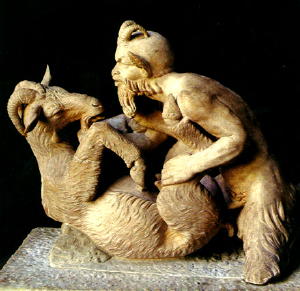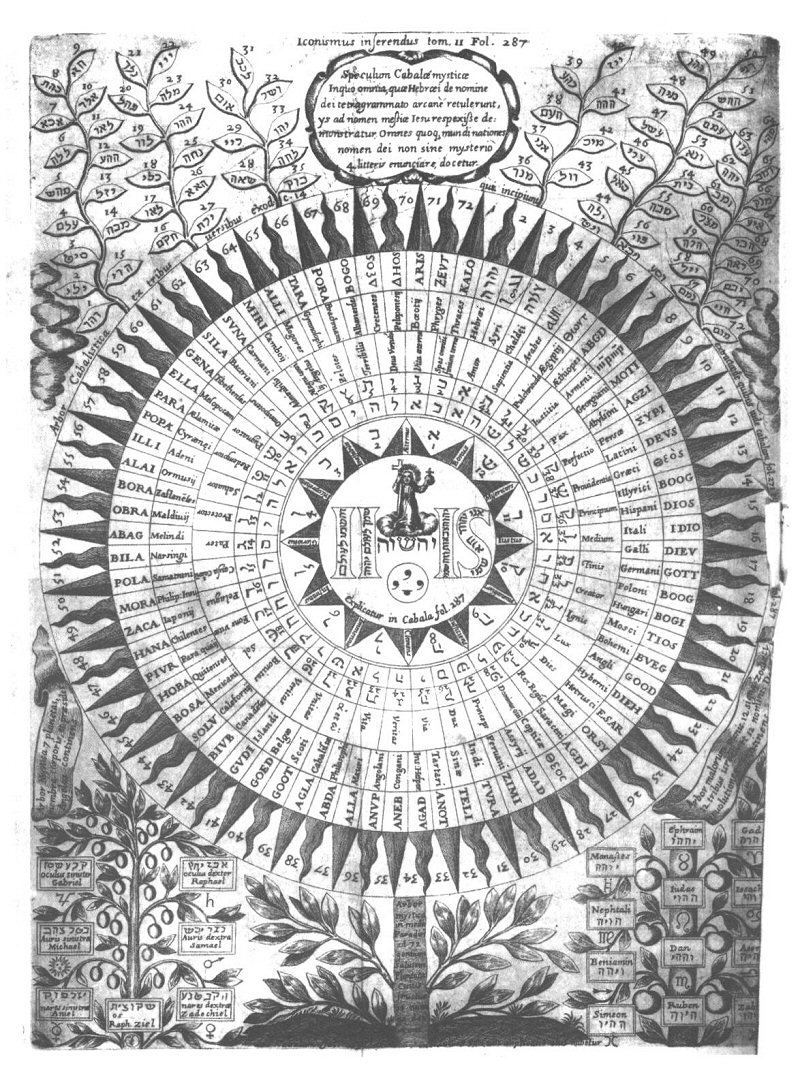Every true savant admits that in many respects human knowledge is yet in its infancy. Can it be that our cycle began in ages comparatively recent? These cycles, according to the Chaldean philosophy, do not embrace all mankind at one and the same time.
Professor Draper partially corroborates this view by saying that the periods into which geology has “found it convenient to divide the progress of man in civilization are not abrupt epochs which hold good simultaneously for the whole human race”; giving as an instance the “wandering Indians of America,” who “are only at the present moment emerging from the stone age.” Thus more than once scientific men have unwittingly confirmed the testimony of the ancients.
Any Kabalist well acquainted with the Pythagorean system of numerals and geometry can demonstrate that the metaphysical views of Plato were based upon the strictest mathematical principles. “True mathematics,” says the Magicon, “is something with which all higher sciences are connected; common mathematics is but a deceitful phantasmagoria, whose much-praised infallibility only arises from this – that
Page 7
materials, conditions, and references are made its foundation.” Scientists who believe they have adopted the Aristotelian method only because they creep when they do not run from demonstrated particulars to universals, glorify this method of inductive philosophy, and reject that of Plato, which they treat as unsubstantial. Professor Draper laments that such speculative mystics as Ammonius Saccas and Plotinus should have taken the place “of the severe geometers of the old museum.”He forgets that geometry, of all sciences the only one which proceeds from universals to particulars, was precisely the method employed by Plato in his philosophy. As long as exact science confines its observations to physical conditions and proceeds Aristotle-like, it certainly cannot fail. But notwithstanding that the world of matter is boundless for us, it still is finite; and thus materialism will turn forever in this vitiated circle, unable to soar higher than the circumference will permit. The cosmological theory of numerals which Pythagoras learned from the Egyptian hierophants, is alone able to reconcile the two units, matter and spirit, and cause each to demonstrate the other mathematically.
The sacred numbers of the universe in their esoteric combination solve the great problem and explain the theory of radiation and the cycle of the emanations. The lower orders before they develop into higher ones must emanate from the higher spiritual ones, and when arrived at the turning-point, be reabsorbed again into the infinite.
Physiology, like everything else in this world of constant evolution, is subject to the cyclic revolution. As it now seems to be hardly emerging from the shadows of the lower arc, so it may be one day proved to have been at the highest point of the circumference of the circle far earlier than the days of Pythagoras.
Mochus, the Sidonian, the physiologist and teacher of the science of anatomy, flourished long before the Sage of Samos; and the latter received the sacred instructions from his disciples and descendants. Pythagoras, the pure philosopher, the deeply-versed in the profounder phenomena of nature, the noble inheritor of the ancient lore, whose great aim was to free the soul from the fetters of sense and force it to realize its powers, must live eternally in human memory.
The impenetrable veil of arcane secrecy was thrown over the sciences taught in the sanctuary. This is the cause of the modern depreciating of the ancient philosophies. Even Plato and Philo Judaeus have been accused by many a commentator of absurd inconsistencies, whereas the
Page 8
design which underlies the maze of metaphysical contradictions so perplexing to the reader of the Timaeus, is but too evident. But has Plato ever been read understandingly by one of the expounders of the classics?This is a question warranted by the criticisms to be found in such authors as Stalbaum, Schleirmacher, Ficinus (Latin translation), Heindorf, Sydenham, Buttmann, Taylor and Burges, to say nothing of lesser authorities. The covert allusions of the Greek philosopher to esoteric things have manifestly baffled these commentators to the last degree. They not only with unblushing coolness suggest as to certain difficult passages that another phraseology was evidently intended, but they audaciously make the changes! The Orphic line:

Moe is the founder of GnosticWarrior.com. He is a father, husband, author, martial arts black belt, and an expert in Gnosticism, the occult, and esotericism.






![How one in the province of the Northumbrians, rose from the dead, and related many things which he had seen, some to be greatly dreaded and some to be desired [Circ. 696 A.D.] | Book 5 | Chapter 11 How one in the province of the Northumbrians, rose from the dead, and related many things which he had seen, some to be greatly dreaded and some to be desired [Circ. 696 A.D.] | Book 5 | Chapter 11](https://www.gnosticwarrior.com/wp-content/plugins/contextual-related-posts/default.png)

